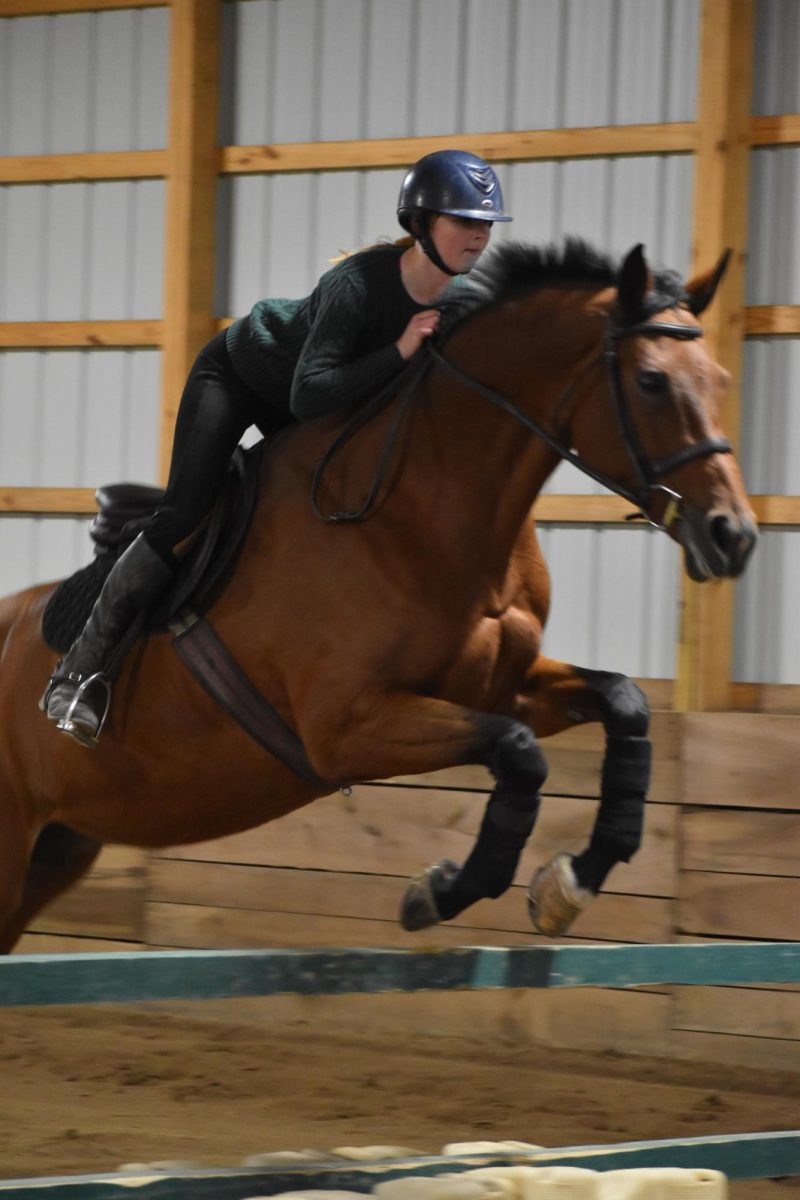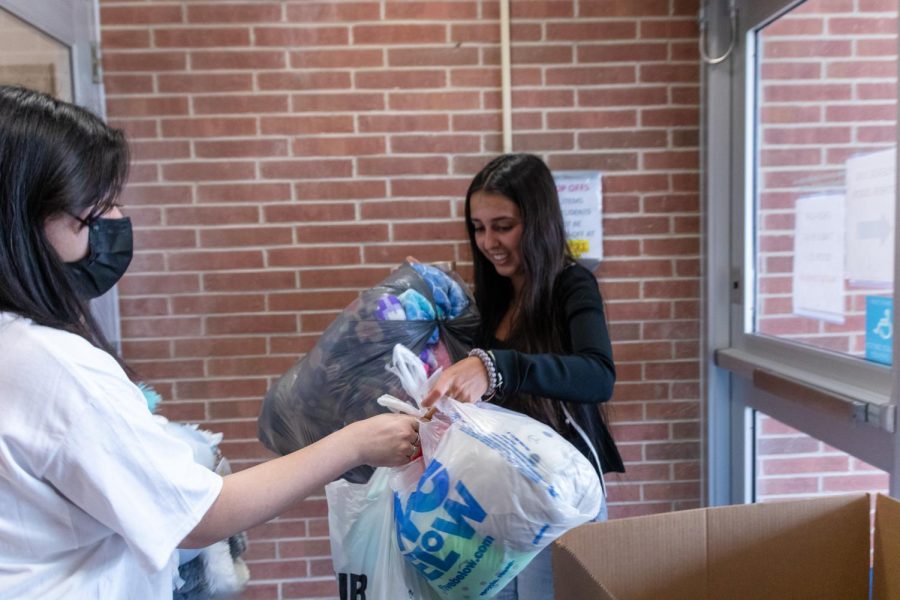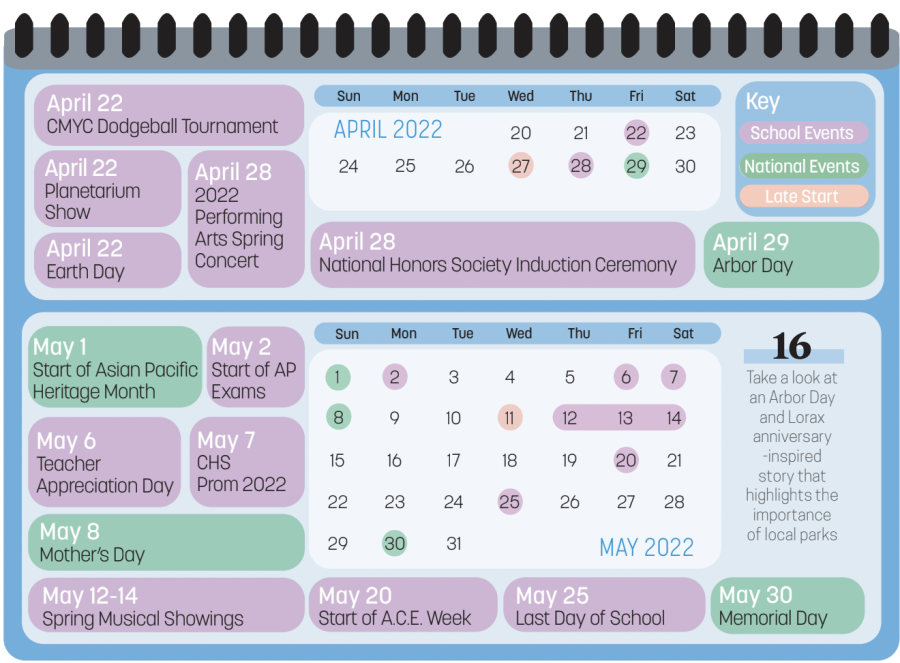Jon Hicks, member of the men’s golf team and junior, said he used to see Tiger Woods as not only the greatest golfer to have ever lived but also as a philanthropist and a family man.
“I wanted to be just like him,” Hicks said.

“I loved pretty much everything about him. I never missed a tournament he was playing in,” Hicks said. “Every Sunday, I was glued to the TV watching him. I bought four or five shirts with Tiger Woods logos on them. I saw him as a true philanthropist, a good father and husband, as well as being just a good guy in general. He seemed to have it all figured out.”
But when scandal broke out in 2009, Hicks said he felt shocked.
“I felt lied to,” he said. “It seemed every tournament I watched Tiger play, coverage would show Tiger immediately walking over and giving his wife a big hug and kiss after his round. (I thought) he was not only a great golfer, but a caring family man as well. Obviously, I was wrong.”
Woods among many athletes caught in scandal in recent years.
After accusations throughout his entire career and even a lifetime ban from cycling from the U.S. Anti-Doping Agency (USADA), seven-time Tour de France winner Lance Armstrong finally admitted to doping in an interview with Oprah Winfrey in January. Oscar “Blade Runner” Pistorius, the highly regarded double amputee who competed in the 2012 London Olympics, was charged with murdering his girlfriend Reeva Steenkamp on Feb. 14.
This upward trend of professional athletes and wrongdoing can have serious consequences for students who see athletes as role models. A 2006 survey from the College of New Jersey reported that 57 percent of students who admitted to using anabolic steroids said professional athletes influenced their decision. Eighty percent of these students said they believed steroids could help them achieve their athletic dreams.
“Society makes (professional athletes) out to be heroes,” Hicks said. “They’re always on TV, they’re always driving nice cars and they’re rich. Students just want to be like them.”
Tim Mylin, women’s track head coach, said students who see professional athletes as role models need to do so cautiously because athletes are human and can make mistakes.
“I don’t think character is a prerequisite for excellence in sports, and I think that’s what our kids need to realize before they put a person on a pedestal. They need to take a close look at what the moral character is,” Mylin said.
Although Mylin said that professional athletes are not necessarily good role models, a 2008 study conducted by the Association of Teachers and Lecturers reported that 60 percent of teachers said their students aspired to be like sports stars.
Mylin said student athletes should aim to emulate professional athletes’ work ethic and performance standards but still realize that athletic ability does not necessarily correspond to good character.
“Athletes and celebrities are people just like we are. They’re gifted and successful, but that doesn’t always translate into a person of great moral fiber,” Mylin said. “We need to realize that our moral character is developed through our family, through our relationships and through (whatever religion) we have. We need to build that into our work ethic as we try to become the best athlete. (Students) need to develop their own moral backbones as they pursue their goals in sports.”
Scott Heady, men’s basketball head coach, said he agreed with Mylin that students needed to be careful not to get attached to high-profile athletes, especially with the prevalence of the media in today’s world.
Heady said, “I think young people have to be careful and not turn those (athletes) they really don’t know into their role models. I think it goes back to parents encouraging kids and saying, ‘You can like this player or that entertainer, but don’t get so attached and make that person the person you want to be.’ You have to be careful.”
“I think with social media, ESPN and games all the time—every night, there are games on, and you can pick probably five or 10 different games to watch—you have so many more opportunities to see athletes,” Heady continued. “Kids get attached to role models because they just see them so much. They’re so publicized. It wasn’t like that a few years ago.”
The rise of social media sites has also impacted the reputations of athletes at Carmel, such as Michael Volovic, men’s basketball team captain and senior. Volovic, who has 1,176 followers on Twitter, said he has to be careful about what he posts because so many people, including younger children who play basketball and look up to him, view his feed each day.
“I have a lot of friends from CHS (who follow me on Twitter), but also basketball players from all over. There are also a couple of scouts and coaches who also follow me. I usually make sure everything I say is appropriate because I don’t want coaches or adults perceiving me as a bad kid if I would ever say anything bad,” he said. “I always say to myself, ‘Would I be okay with this (tweet) being on the front page of a newspaper?’ There are some (tweets) that I decide to delete because they don’t fit that system.”
According to Heady, even though students should be wary about who they admire, professional athletes also have a responsibility to make good decisions knowing that they are in the public spotlight, the way Volovic does.
“You hear some athletes say, ‘I’m not a role model. I’m just like anybody else; my job should be just like anybody else’s.’ Well, it’s not, because it’s more publicized,” Heady said. “I think (being a good role model) comes with the job (of being a professional athlete). We all want privacy in our lives, and I think that is important, but it goes with the territory that there’s a responsibility to be a good role model.”
Ariel Hune, women’s track team captain and senior, said that because athletes’ behavior and decisions have a huge impact on students, not all athletes are worthy of being role models.
Hune said, “If you see (athletes) drinking a sports drink and they’re good, you want to go out and do it. If they wear a certain brand of clothes, you want to do it. They listen to certain kinds of music; you want to go out and do it. You see them eating something; you want to go do it. They don’t realize that everything that they do influences younger people who look up to them and watch what they’re doing.”
Because she knows how much athletes and the media affect younger students’ decisions, Hune said she behaves differently on the track and takes her job as team captain more seriously because she knows people are looking up to her.
“I’m usually goofy and have fun a lot, but when it’s time for practice, I get serious,” she said. “Now, I have to watch what I do, what I say and who I hang around with. It matters.”
However, according to Hune, athletes can also use their influence positively by working hard and staying out of trouble.
“Not (all) professional athletes do steroids and all the stuff that they shouldn’t be doing. You should look up to the people who do great things and work hard,” she said. “They don’t have to be amazing athletes, but they can still work hard and be good people. But they can just as easily be amazing athletes, think they’re better than everybody, be a snob and just treat everybody awfully.”
She said some athletes, including Olympic track and field stars Sanya Richards-Ross and Allison Felix, inspire her with their work ethic and dedication.
“I look up to them because I am an athlete,” Hune said. “I aspire to go to the Olympics like they do and do great things like they do.
“A girl last year told me, ‘Ariel, I just want you to know that you’re my role model. You work so hard,’” she said. “Because I do work so hard. I train with the (men’s) track team. That’s how serious I am about it during the off-season. I train with the (men’s) track team so that I can be good, and they always ask me, ‘Ariel, why are you even here with us? You’re a girl.’ But I tell them, ‘I want to be good. I want to be as fast as you guys.’
“I want my team to do well, just like I want to do well,” Hune continued. “Everyone says track is an individual sport, and it is, but it’s also a team sport—because you’re running for you, but you’re also running for your team. I want to help my team get to where we want to be. I want us all to be able to do great things, and I want us to do well this year.”
Like Hune, Hicks said that the way students behave outside of practice and competition, whether it be good or bad, affects the rest of the team.
Hicks said, “Last year, we had an incident that actually brought us closer as a team. We had a teammate get suspended (for) four matches, and he was going through some tough times, so we all pulled together and helped him through it. It actually kind of helped us in the long run—not that suspensions are a good thing, but it helped bring all of us together.”
According to both Mylin and Heady, however, their athletic programs have been fortunate that discipline issues with students at this school are few and far between.
“Here at Carmel—what a great place to be. You couldn’t ask for a better school, better people, better support, better teachers and better programs,” Heady said. “We’ve developed a culture in our program (such) that our (students) just know that (good behavior) is a part of being on the basketball team. We’ve got unbelievably high-character student athletes here.”
As for Hicks, he said he still thinks of Tiger Woods as an inspirational and talented golfer but no longer a role model for character.
“I still love watching him,” he said, “but I definitely think less of him as a person…Tiger didn’t set a good example for all his fans. Like Spider-Man said, ‘With great power comes great responsibility.’”
































![British royalty are American celebrities [opinion]](https://hilite.org/wp-content/uploads/2024/03/Screenshot-2024-03-24-1.44.57-PM.png)




















![Review: Quiet on Set: The Dark Side of Kids TV is the long awaited exposé of pedophilia within the children’s entertainment industry [MUSE]](https://hilite.org/wp-content/uploads/2024/04/unnamed.jpg)
![Review: “The Iron Claw” cannot get enough praise [MUSE]](https://hilite.org/wp-content/uploads/2024/04/unnamed.png)
![Review: “The Bear” sets an unbelievably high bar for future comedy shows [MUSE]](https://hilite.org/wp-content/uploads/2024/03/unnamed.png)
![Review: “Mysterious Lotus Casebook” is an amazing historical Chinese drama [MUSE]](https://hilite.org/wp-content/uploads/2024/03/0.webp)
![Thea Bendaly on her Instagram-run crochet shop [Biz Buzz]](https://hilite.org/wp-content/uploads/2024/03/IMG_0165-1200x838.jpg)
![Review in Print: Maripaz Villar brings a delightfully unique style to the world of WEBTOON [MUSE]](https://hilite.org/wp-content/uploads/2023/12/maripazcover-1200x960.jpg)
![Review: “The Sword of Kaigen” is a masterpiece [MUSE]](https://hilite.org/wp-content/uploads/2023/11/Screenshot-2023-11-26-201051.png)
![Review: Gateron Oil Kings, great linear switches, okay price [MUSE]](https://hilite.org/wp-content/uploads/2023/11/Screenshot-2023-11-26-200553.png)
![Review: “A Haunting in Venice” is a significant improvement from other Agatha Christie adaptations [MUSE]](https://hilite.org/wp-content/uploads/2023/11/e7ee2938a6d422669771bce6d8088521.jpg)
![Review: A Thanksgiving story from elementary school, still just as interesting [MUSE]](https://hilite.org/wp-content/uploads/2023/11/Screenshot-2023-11-26-195514-987x1200.png)
![Review: When I Fly Towards You, cute, uplifting youth drama [MUSE]](https://hilite.org/wp-content/uploads/2023/09/When-I-Fly-Towards-You-Chinese-drama.png)
![Postcards from Muse: Hawaii Travel Diary [MUSE]](https://hilite.org/wp-content/uploads/2023/09/My-project-1-1200x1200.jpg)
![Review: Ladybug & Cat Noir: The Movie, departure from original show [MUSE]](https://hilite.org/wp-content/uploads/2023/09/Ladybug__Cat_Noir_-_The_Movie_poster.jpg)
![Review in Print: Hidden Love is the cute, uplifting drama everyone needs [MUSE]](https://hilite.org/wp-content/uploads/2023/09/hiddenlovecover-e1693597208225-1030x1200.png)
![Review in Print: Heartstopper is the heartwarming queer romance we all need [MUSE]](https://hilite.org/wp-content/uploads/2023/08/museheartstoppercover-1200x654.png)























![Review: Ladybug & Cat Noir: The Movie, departure from original show [MUSE]](https://hilite.org/wp-content/uploads/2023/09/Ladybug__Cat_Noir_-_The_Movie_poster-221x300.jpg)

![Review: Next in Fashion season two survives changes, becomes a valuable pop culture artifact [MUSE]](https://hilite.org/wp-content/uploads/2023/03/Screen-Shot-2023-03-09-at-11.05.05-AM-300x214.png)
![Review: Is The Stormlight Archive worth it? [MUSE]](https://hilite.org/wp-content/uploads/2023/10/unnamed-1-184x300.png)



